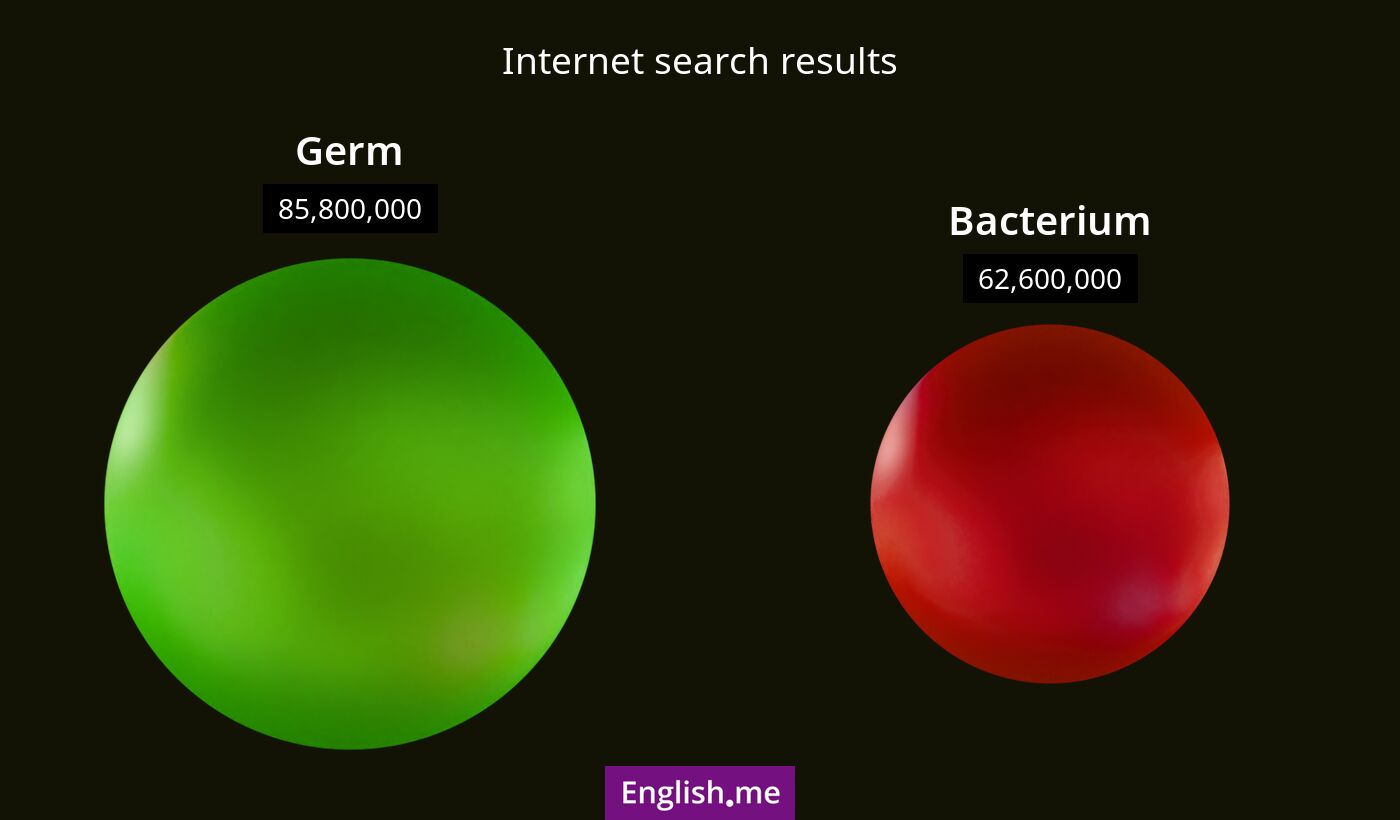"Germ" vs. "bacterium" – a microscopic exploration
Reviewed and edited by  Lloyd Cooper 08/10/2024, 20:40
Lloyd Cooper 08/10/2024, 20:40
English.me team member

 What is similar?
What is similar?
Both terms are related to microbiology and refer to microscopic organisms. Both can cause diseases in humans and other living organisms.
 What is different?
What is different?
Germ is a broad term that can refer to bacteria, viruses, fungi, or other microorganisms, while bacterium specifically refers to a single microscopic cellular organism that belongs to the domain Bacteria. Germ is often used in a more general context, sometimes referring to anything that causes disease, whereas bacterium is a scientific term used to classify and describe specific types of microorganisms.
 Which one is more common?
Which one is more common?

 Examples of usage
Examples of usage
Germ- Washing your hands frequently can help prevent the spread of germs.
- The common cold is caused by a virus, which is one type of germ.
- He used disinfectant wipes to kill germs on the kitchen counter.
- Escherichia coli is a well-known bacterium often used in scientific research.
- Not all bacteria are harmful; in fact, many play beneficial roles in our bodies.
- The bacterium was identified under the microscope as part of the infection diagnostics process.

 English
English español
español française
française italiano
italiano deutsche
deutsche 日本語
日本語 polski
polski česky
česky svenska
svenska Türkçe
Türkçe Nederlands
Nederlands